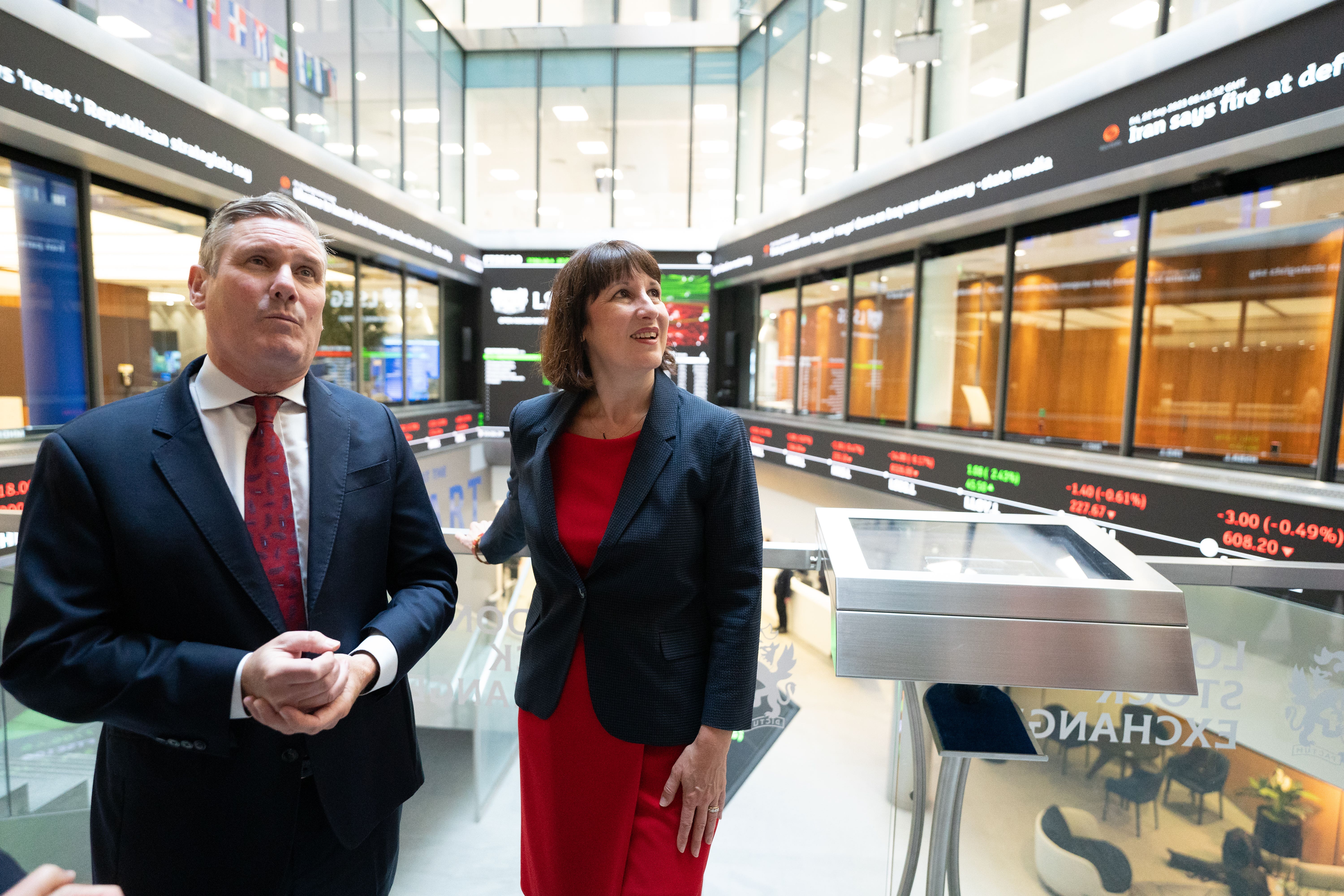Starmer may finally have found his ‘magic money tree’ – but his party won’t like it
If he is to have any hope of funding infrastructure projects after the HS2 debacle, Keir Starmer could soon find himself making a ‘deal with the Devil’ by hopping into bed with private investors, writes Andrew Grice


The HS2 fiasco, which has highlighted the UK’s poor record on major projects, also raises big questions about how the country will fund infrastructure in future.
It is a particularly acute one for Labour. Keir Starmer has ruled out reviving the full HS2 programme after Rishi Sunak finally killed the Birmingham to Manchester leg. Starmer has sidestepped a Tory trap by supporting the £36bn of rail, road and bus schemes Sunak promised instead. So there is no pot of “HS2 savings” for Starmer.
Indeed, Labour minds are starting to fret about how an incoming Starmer government which inherited eye-wateringly tight public spending plans, with tough self-imposed fiscal rules and a pledge not to raise taxes, could afford the infrastructure projects it would need to boost economic growth.
The anxiety goes much wider: how could a Labour government with little scope to increase borrowing build new schools and hospitals, and remove the crumbling concrete?
The government’s flip-flop on HS2 is bound to deter private investors, notably foreign ones, from taking part in future infrastructure projects. Yet senior Labour figures tell me Starmer and Rachel Reeves, who would be his chancellor, would have to turn to the private sector to plug the gap.
At first glance, this looks politically and economically risky. The private finance initiative (PFI), launched by John Major but adopted with relish by New Labour, was scrapped in 2018 after criticism of the cost and inflexibility. The National Audit Office, the public spending watchdog, said then that Britain had incurred billions in extra costs for no clear benefit, with fees running at £10bn a year and a £199bn bill for 700 projects over the next three decades. Typically, companies borrowed to fund hospitals, schools and roads, with taxpayers repaying them for debt, maintenance and other services over 25 to 30 years.
The public is still paying a high price for a programme in which the risks were carried by the state borrowers rather than the private lenders. The Centre for Health and the Public Interest told BBC’s Newsnight this week that higher inflation has added £470m to the PFI bills facing NHS trusts in England over the past two years. Stella Creasy, the Labour MP, said the PFI firms are “the legal loan sharks of the public sector.”
Despite all this, it is dawning on the Labour leadership it will need a “PFI 2.0” if it wins power. That will be controversial for many in the party.
At the Labour conference in Liverpool starting on Sunday, Starmer and Reeves will promise a new partnership with business, a clear and consistent policy framework companies can trust after the chaos of the Tory years, and a coherent industrial strategy.
But how would Labour persuade the private sector to fund public projects on more favourable terms for taxpayers than previously?
A clue will emerge when Peter Mandelson, a close ally of Starmer and a former business secretary, addresses a dinner of financial bosses at the conference on Monday. He will argue that Labour and the private sector need to work “hand in glove,” and an “invest to grow” partnership would be in both the companies’ and the national interest (since the UK is in a highly competitive global race for investment money). “We need to have a grown-up conversation about up-to-date models of private finance for UK infrastructure given fiscal pressures,” the Labour peer will say.
He will hint at a grand bargain in which Labour would relax planning rules so building projects go ahead in months rather than years and ensure financial regulators deliver “greater risk appetite” as well as stability.
The Tories’ reputation in the business world took a battering during the Johnson and Truss regimes and over HS2. More company chiefs will attend Labour’s conference than turned up at last week’s Tory gathering. A survey by Focaldata found that 49 per cent of business representatives believe Starmer is most in touch with business needs, with only 34 per cent saying Sunak.
No wonder Jeremy Hunt, the chancellor, persuaded some leading companies not to join Labour’s proposed British infrastructure council in time for Reeves to announce it in her conference speech on Monday, according to The Times.
Labour, often distrusted by business in the past, might now pull off a remarkable role reversal by hopping into bed with private finance. Many in his party would regard it as a pact with the Devil, but Starmer has no one else to sup with.
A Labour government unable to boost investment would end in failure, as it would not secure the higher economic growth needed for it to improve public services and tackle inequality. The only magic money tree is privately owned.






Join our commenting forum
Join thought-provoking conversations, follow other Independent readers and see their replies
Comments